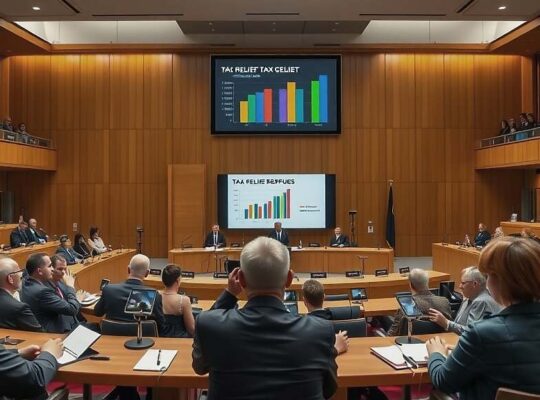The contentious debate surrounding the commuter benefit (Pendlerpauschale) and the Value Added Tax (VAT) reduction for the hospitality sector appears poised for implementation, according to Frauke Heiligenstadt, the SPD’s spokesperson for financial policy. Heiligenstadt expressed confidence in the proposal’s success, citing its inclusion within the existing coalition agreement.
“I am very optimistic that this will happen. We have agreed on this in the coalition treaty” she stated in interviews with RTL and ntv. The measure, she argues, constitutes a dual benefit: bolstering the struggling restaurant and hospitality sectors while simultaneously providing tax relief for individuals seeking more affordable dining options and enhanced support for commuting expenses.
Recent demands from regional governments for increased equalization payments from the federal government were met with rejection by Finance Minister Klingbeil. Despite this apparent impasse, Heiligenstadt remains unconvinced of any significant threat to the proposals’ progression. She emphasizes ongoing dialogue between state premiers and the federal government concerning improved financing of local government responsibilities, pointing to the planned reform of legacy debt regulations as a key example of constructive engagement.
“There is a dialogue between the state premiers and the federal government on how to finance state tasks at the local level even better. I give one example: the regulation of old debts. We also want to tackle that” she explained, suggesting a spirit of compromise despite divergent perspectives.
Hopes are also pinned on today’s tax revenue forecast, which anticipates increased state revenue. Heiligenstadt indicated that these projected surpluses would be utilized to offset the fiscal impact of the current tax measures, particularly for municipalities. “We will compensate the municipalities for the previous tax measures” she asserted. This potential revenue influx is also presented as a key argument in favor of the hospitality VAT reduction, a measure actively championed by several regional governments, suggesting broad-based political support despite the challenges of securing unanimous agreement.
The success hinges on demonstrating the financial feasibility to regional authorities reluctant to forgo additional revenue, highlighting a crucial political tightrope walk for the governing coalition.












